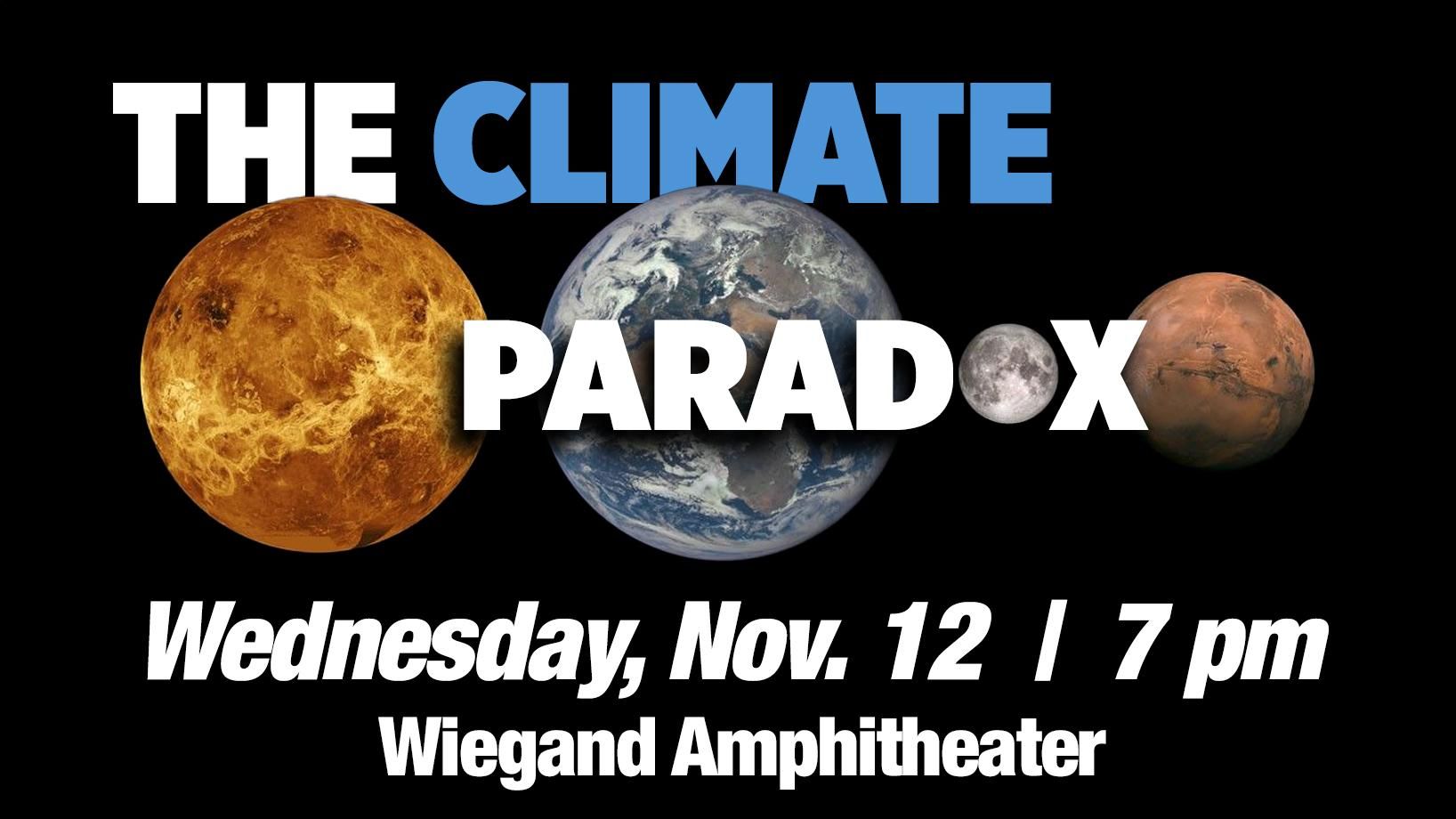Please join us for a public astronomy lecture by Dr. Kelly Cline
What lies beneath Venus’ clouds of burning acid? Why is Mars a frozen desert? Four billion years ago, just after the Sun and planets formed, the Earth, Venus, and Mars were probably very similar planets. They most likely had similar atmospheres, and were about the same temperatures, but today they could not be more different. Volcanoes on Venus have created an overheated nightmare: It is hot enough to melt lead on the surface of this barren world. Mars has no volcanoes anymore, leaving behind only a very thin atmosphere, not thick enough to support liquid water. But in the distant past, something special happened on the Earth. Astronomers are gathering stronger evidence that somehow the Earth’s oceans managed to balance our atmosphere and climate, keeping us at a comfortable temperature and allowing life to form and evolve. NASA has a lot of exciting plans for further exploring these neighbor planets, which will teach us not only about Mars and Venus, but also about our Earth and why it works so well.

